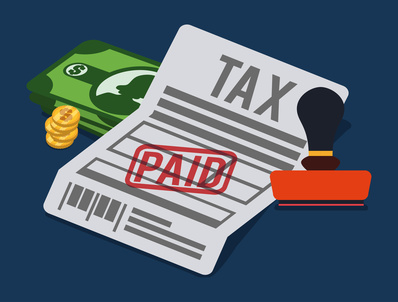Paying Taxes In Installments: Getting an Installment Agreement with the IRS
 While the IRS will always encourage you to pay your taxes when they are due, they may agree to the use of installment agreements if you are unable to pay the full amount that is owed in one payment. There are a number of different agreements that you can enter into, based on your personal circumstances.
While the IRS will always encourage you to pay your taxes when they are due, they may agree to the use of installment agreements if you are unable to pay the full amount that is owed in one payment. There are a number of different agreements that you can enter into, based on your personal circumstances.
How will the IRS decide which agreement I can enter into?
There are a number of different installment agreements that are available, and the one that will be best for you will depend on a number of factors. There are certain installment agreements that can only be used if you owe less than $25,000, whereas others may be more suitable if you owe a larger amount. The range of different options that are available, and the implications of these agreements means that it may be a good idea to get some professional advice from a tax lawyer about the best way to proceed.
Does the IRS have to agree to a payment plan?
The IRS is under no obligation to offer you any kind of installment agreement, but there are some steps that you can take to make acceptance more likely. Some installment agreements may require you to fill in Form 433-D, which will detail all of your income and expenditure. In other more complex cases the Taxpayer may be required to complete Form 433-A, and in some cases, Form 433-B. Even after this form has been filed, the IRS can still refuse to offer you an agreement. This is more likely to happen if they suspect you have not been fully honest on the form. Complete disclosure is always the best policy. IRS will also be reluctant to offer you a new agreement if you have previously had a payment plan agreement in the past.
When Can Installment Agreements Be Revoked?
Even if the IRS lets you pay the taxes in installments, there are certain situations where this agreement may be revoked. Failing to file a tax return in future years is one such circumstance, and so it is important to ensure you keep up to date with your taxes from this point forward. The agreement may also be revoked if you fail to make a payment per the current agreement. The IRS offers several payment methods such as debit or credit card, direct debit and payroll deduction. Choose a method you think will enable you to stick to the agreement so no payments are missed.
The IRS may offer you a bit of leniency when it comes to paying the taxes that you offer. It should be remembered that ultimately, IRS just wants the revenue owed, will take any action necessary to ensure this happens. If they do offer you an installment agreement, and you don’t adhere to the terms, it can cause serious consequences. It should also be remembered that you will have to pay interest on your taxes if they are paid in installments, and that fees are payable when you enter into certain installment agreements. If you are able to raise the money to pay your tax bill in one lump sum, then this is certainly an option that should be considered.
This article about installment agreements is brought to you by Verni Tax Law. If you are a U.S. expat and need an attorney with International experience to solve even the most sophisticated tax problems, contact Anthony Verni for an initial consultation. With over 20 years of experience, Anthony delivers successful results to clients living in and outside of the U.S.


